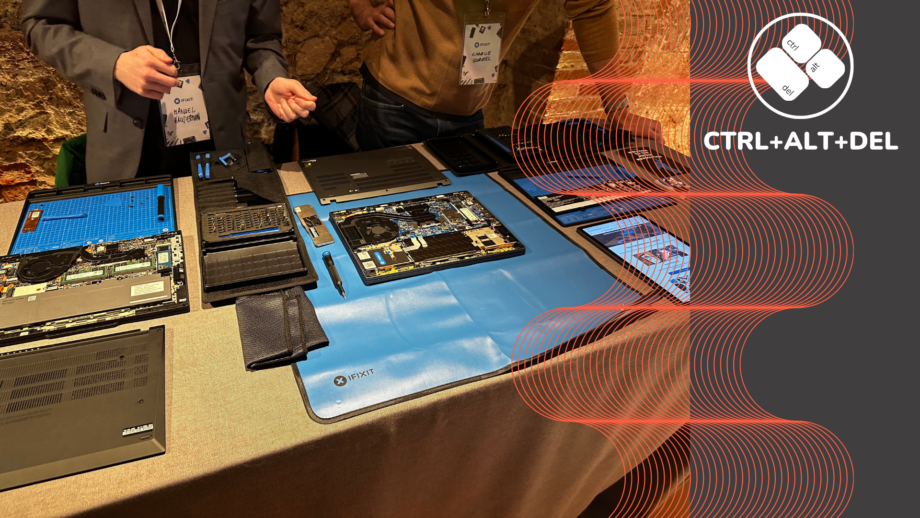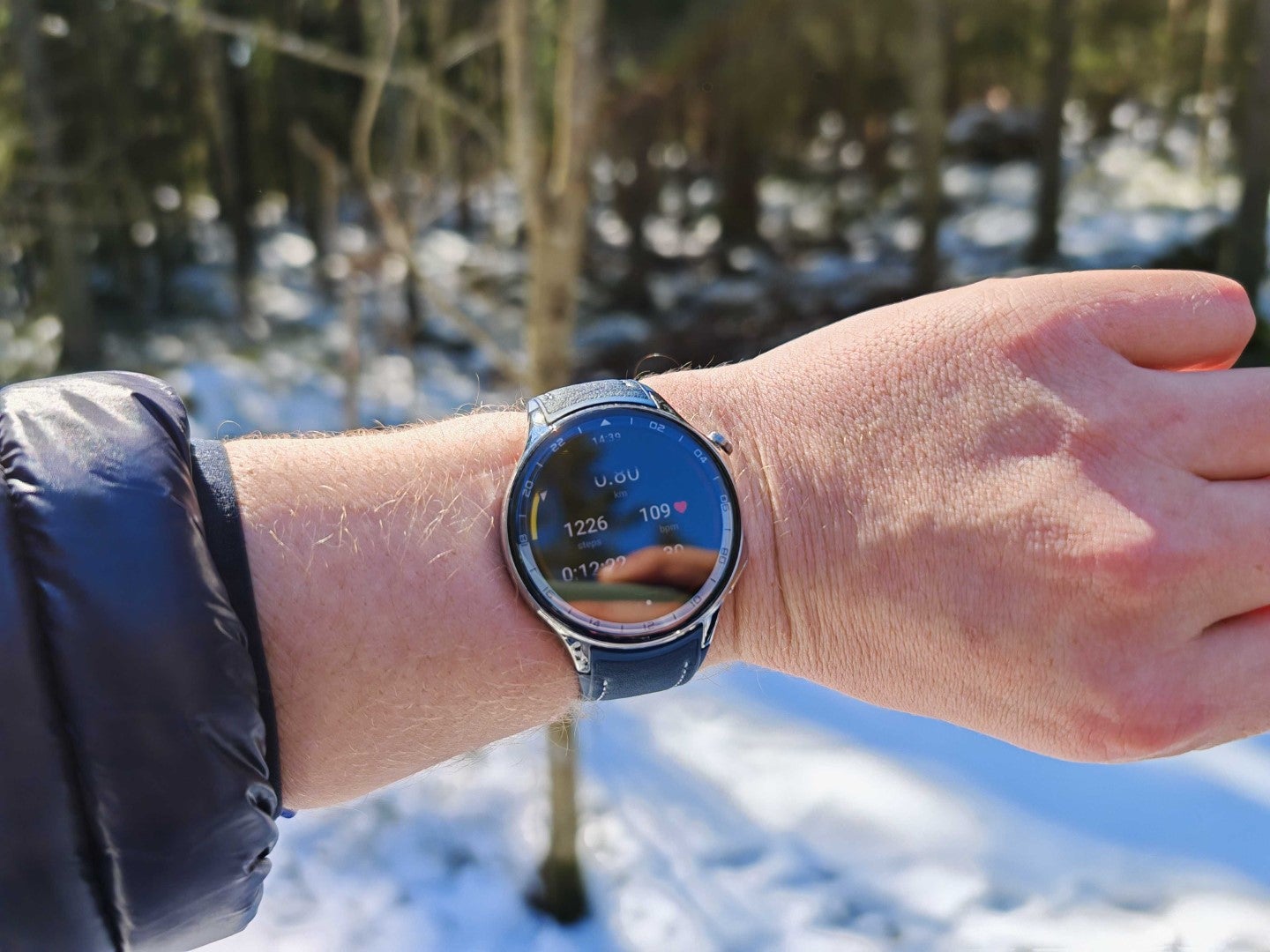Ctrl+Alt+Del: AI laptops aren’t ready yet – make them repairable instead

OPINION: Laptops may not have been the focal point of Mobile World Congress this year, with mobile phones expectedly taking centre stage. However, three trends emerged on the PC side: concepts, “AI PCs” and, to a lesser extent, repairability. Yet, I’m way more excited about the latter than the others.
Repairability isn’t the most eye-catching of features but, for an industry that loves to tout sustainability, it could put a lot more effort into making it a priority.
Instead, the last year or so has seen the term “AI PC” grow and grow across announcements in the computing world despite experience with AI on PCs remaining extremely limited.
Windows Studio Effects that make your video calls better are great and all but they’re hardly cutting edge. And, a lot of people’s interaction with AI on their devices is likely to have been cloud-based, such as various dabbles with ChatGPT at home or work. I’m sure AI will play a huge part in the future of laptops, but we’re not there yet. Repairability, however, is far more within reach.
Repairability is growing, but it remains far too niche
The star of MWC 2024 when it comes to repairability was Lenovo. Yes, more focus was placed on its Transparent Laptop Concept and the bendable phone from its sister brand Motorola, but it was something else that could make an impact in the near future.

Save £100 on the Lenovo Legion R45w-30
Very is selling the 5-star Lenovo Legion R45w-30 curved gaming monitor at a £100 discount.
- Very
- Save £100
- Now £699
That device was the Lenovo ThinkPad T14 Gen 5. Lenovo worked with repairability outfit iFixit to boost what this laptop could offer in this area. iFixit describes the efforts as, “From easily replaceable parts, to a design that supports safe and straightforward repairs, Lenovo’s team prioritized repair down the cable connections and fasteners.”
iFixit typically scores laptops out of ten for repairability and it has touted that, despite looking remarkably similar on the outside, the ThinkPad T14 Gen 3 of old received a 7/10 but the new device it consulted on now warrants a 9/10.

The ThinkPad T14 Gen 3, more specifically, comes with wider access to customer replacement parts, a cable-free connector for the battery along with replaceable RAM, SSD and network card. There are also visual indicators to provide information on how to carry out the repairs and replacements, with Lenovo creating new repair guides to accommodate this.
The ultimate aim, Lenovo says, is to “extend the product lifecycle, reduce electronic waste and provide cost-saving advantages to business and individuals” – all admirable goals in my view.
Lenovo’s showing at MWC isn’t the only exciting development in repairability over the last months, with Dell’s Concept Luna initiative making its way onto the brand’s commercial-focused Latitude laptops in a similar fashion to Lenovo’s ThinkPad work.
Then, there’s Framework, a pioneer in this area, with its latest Framework Laptop 16 offering a stunning hot-swappable device. It allows for the easy repair and upgrade of key parts, with even the graphics chip being an upgradeable part in this laptop. Our review called it a modular “work of genius”.
The “AI PC” gimmick
Artificial intelligence (AI) is the buzzword of the moment in the technology world. But, when it comes to laptops, “AI PC” has been honed in on. Whether that’s Honor and, even, Lenovo at MWC 2024 for the big chip brands who are driving this home from the very top, like Intel and AMD, it is everywhere.
Now, AI is undoubtedly set to become a larger part of how we interact with our devices, in both our home and working lives, and in a rapid way. But, companies have already dove head first into describing machines as “AI PCs” when, in reality, what you get right now is a dedicated neural processing unit (NPU) on the latest flagship chip-sporting laptops which, for most, currently just enables Windows Studio Effects and not much else.
Of course, some specific tasks for specific professionals may use the NPU regularly already but “AI PC” isn’t a worthy selling point for the average consumer quite yet.
Even, Microsoft’s Copilot, which is set to be the first port of call for meaningful interaction with AI for many laptop users, hasn’t been fully rolled out. It’s also cloud-based so it doesn’t need an “AI PC” to operate.

Yet, brands are keen to slap “AI PC” on the announcement of their latest laptop products as if it warrants being a huge selling point in early 2024.
Honor’s MagicBook Pro 16 looks like an intriguing device, with Intel’s Core Ultra chip and accompanying NPU onboard but its key “AI” features are its Magic Portal, enabling fast collaboration with other Honor devices. Not only is it a tad niche as it requires you to have multiple Honor products but we’ve seen this technology from other brands like Apple, Samsung and Huawei with no mention of it requiring AI to operate.
Honor is touting that the laptop will come with its on-device MagicLM generative AI assistant too, but its largerly functionality provided by cloud-based solutions right now, though being on-device should provide added security.
As such, I’d much rather see laptops proudly touting repairability over “AI PC” features in 2024. Not only does it shoot for more broad and admirable sustainability goals but, done right, it could have a real impact on the consumers’ wallet – breaking a cycle of needing to replace your device and fork out huge costs at the sign of a problem or digital wear.
iFixit puts it best, “The Lenovo ThinkPad T14 Gen 5 shows that repairable design doesn’t need to be a niche that comes with uncomfortable trade-offs, but can be made possible within the requirements of a modern business laptop.” Hopefully, more and more brands get onboard with these initiatives and a future where it’s all modern laptops, not just business ones, that make repairability the new “AI PC”.
Ctrl+Alt+Del is our weekly computing-focused opinion column where we delve deeper into the world of computers, laptops, components, peripherals and more. Find it on Trusted Reviews every Saturday afternoon.







